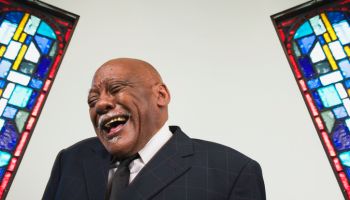by Ron Holland
Let me disabuse the notion that GOD peeled back the ceiling of the Universe and handed humanity a neatly packaged faith system containing the doctrines and dogma of Christianity. The doctrinal origins of Christianity didn’t emerge from a miraculous pronouncement or descend from the Heavens as a perfect and cohesive expression of GOD’S truth. The theological underpinnings of Christianity – our doctrines, creeds, axioms and mores – are the result of hundreds of years of argument, deliberation, verbal and physical hostilities; deceptions, and forgeries.
These doctrinal origins are replete with scandal, disparagement, slander and imprisonment. It took over 300 years for Galileo Galilee to be vindicated for contradicting the church’s stubborn doctrinal position that the Earth was at the center of the Universe and the Sun’s fixed position was a violation of biblical teaching. Yet, it’s our rigorous adherence to these doctrines of faith that firmly binds us to GOD. It has allowed us to appreciate grace and to know mercy.
Though not perfect, the Christian faith guides us into the loving embrace of a Holy GOD. But if we’re to wholly embrace the Christian faith, we have a responsibility to know every facade of the tradition – both good and bad. More importantly, we must know how the doctrinal tenets of our faith emerged. We must be intimately familiar with how these doctrines shaped the lives of our Christian forebears and us today. Knowing what the decision makers of the past wrestled with contextualizes our contemporary thoughts. As you journey with me, I ask you to keep an opened mind. I will also admonish you to make a personal commitment to go beyond Bible study and engage your faith in a more intimate and responsible way. We owe it to our children and future generations of Christians to be forthcoming about every facade of this storied tradition.
SCHISMS
I’ve always been fascinated with the denominational schisms that exist within the Christian faith. Whether it’s the twisted logic of “Conservative Evangelicals” who dismiss the “Christianity” of Catholics or the fallacious assumptions of Pentecostal Christians who question the “salvation” of Baptists, today’s schisms are a reflection of the conflict and divisions of the past. Just as Charismatic and Evangelical Christians are locked in dispute with Reform-driven Christians over the “Prosperity Gospel; issues of race, bigotry, xenophobia and the role of women in the church, so too were Tertullian and Marcion locked in dispute over who presented an authentic version of Christianity.
Perhaps it’s presumptuous of me to suggest that what I’m sharing isn’t being taught in your Bible Study class. But in posing basic questions about the history of the doctrines that undergird the Christian faith, I’ve discovered that people are completely oblivious about the process by which these doctrines and dogma emerged. There truly is a pervasive ignorance of how Christians come to believe what they believe. Whether it’s because we’re taught to only adhere to our doctrines, creeds and the Bible or there’s an intentional aversion to anything that challenges our core beliefs and assumptions. It’s a sad occasion when people are either disinterested in or persuaded from learning the historical complexities of our faith.
In some ways, I believe we were robbed of the opportunity to know more about the full emergence of our faith. Whether it’s the selective canon of scripture that make up the sixty-six books of the Bible or the deliberations that led to the doctrines that undergird Christianity, decision makers of the past decided what we’re to believe.
Just imagine reading books excluded from the biblical canon like the ‘Apocalypse of Peter.’ This excluded text has Peter and Jesus conversing about the souls that are languishing in Hell. Peter asks Jesus why a loving God would allow souls to suffer a torturous eternity in Hell. Jesus tells Peter the souls would eventually be released from their punishment. Obviously the men who decided the contents of the biblical canon had a difficult time reconciling the ‘Apocalypse of Peter’ with the doctrinal position of how to obtain salvation. It isn’t enough to suggest that if GOD wanted us to know this information it would have been added to the bible. To that I say hogwash. A select few men decided what is important, thus robbing us of the opportunity to arrive at our own conclusion. Additionally, now that modern scholarship is providing access to this information, it contradicts the notion that somehow GOD intended this information to be forever lost to us.
SHAPERS OF DOCTRINE AND DOGMA
I want you to become familiar with the following names: Arius of Alexandria, Athanasius of Alexandria, Lucian of Antioch, Origen, St. Alexander, Nicholas of Myra, the “Cappadocian Fathers:” SS Basil the Great, Gregory the Theologian and Gregory of Nyssa. You should know the names and works of Clement, Irenaeus and Polycarp. After this reading, I challenge you to become familiar with their impact on Christian thought and doctrine.
When the First Council of Nicaea was convened, the dispute over Jesus’ relationship to GOD had been a source of conflict for over a century. In the decades leading up to the First Council, a host of Christian communities such as the Ebionites, Marcionites and Gnostics had wildly varying views of Jesus. For example: the Ebionites believed Jesus was the Messiah and due to his righteousness, was chosen by GOD to die for humanity’s sins. The Ebionites believed that Jesus was a full-fledged human being, was not GOD or divine. And interestingly, the Ebionites wholly rejected the teachings of Paul.
The Marcionites on the other hand, believed there were two Gods – one of the Old Testament whose wrath and vengeance made him lesser than the God of Love who sent Jesus to save them from the God of the Old Testament. The Marcionites believed that Christians follow the God of Jesus, not the God of the Old Testament.
The Gnostics believed that Jesus’ death and resurrection didn’t bring salvation, but that his secret teachings were key to the salvation. These and other early Christian communities vied for authenticity and possessed their own articles of faith to substantiate their system of belief.
HASHING IT OUT DURING THE FIRST COUNCIL
At the approach of the First Council in 325 CE, the arguments over Jesus’ divinity hit a fever pitch. Various Christian communities continued to advance their particular beliefs about the man they called Messiah. As various books and writings came into circulation, these communities grew larger. It’s instructive to know that these communities understood that the scriptures in circulation were varied and disputed. The jockeying for who possessed an authentic scripture was routine.
There were a bevy of Christian communities that embraced certain books and scriptures over others – those include the Marcionites and Ebionites. There were forgeries of books, writings and Epistles. There were claims of false teachings hurled at Paul by apostles of Jesus, namely Peter and James. And Paul was accused of advancing his own doctrine. Today’s scholars also note the distinct differences between what Jesus taught and what Paul advanced. Scholars today also know with a great degree of certainty that Paul did not write: Colossians, Ephesians, 2Thessalonians, 1 Timothy, Titus, 3 Corinthians – yes there is a third Corinthians, letters to Seneca and other writings attributed to him.
The question of whether Jesus was “Co-eternal” and “Consubstantial” with GOD had to be settled among men. In the first chapter of the Book of John it reads: “In the beginning was the Word, and the Word was with God and the Word was God.” This verse of scripture is traditionally believed to suggest that Jesus is the Word or Logos and that it affirms his “Consubstantial” relationship with GOD.
However, during the Fourth Century, Arius of Alexandria and a host of others, ignited a controversy that led to the First Ecumenical Council of the church. Arius casted doubt on the doctrinal proposition that Jesus was co-equal or consubstantial with GOD. He also contradicted the belief that Jesus pre-existed creation. Unfortunately, Constantine ordered the suppression and burning of Arius’ writings. It would have been nice to have closely examined all of Arius’ arguments. But a quote attributed to Arius and letters written by his detractors provides insight into the argument he advanced: “If the Father begat the Son, he that was begotten had a beginning of existence: and from this it is evident, that there was a time when the Son was not. It therefore necessarily follows, that he (the Son) had his substance from nothing.” Provocative indeed.
History suggests there was a two month debate during the First Council where Athanasius of Alexandria and Arius argued intensively for their prospective positions. Athanasius argued that Jesus was co-eternal and con substantial with GOD. Arius argued that Jesus was directly created and begotten of God and that there was a time that Jesus had no existence. According to Arius, Jesus was capable of his own Free will and was a finite being. “Arius appealed to scripture, quoting verses such as John 14:28, ‘the Father is greater than I.” And also Colossians 1:15, ‘Firstborn of all creation.” Thus, Arius insisted that the Son was under God the Father, not co-equal or con substantial with him.”
Arius seems to have had a substantial following. Although he was excommunicated by Bishop Alexander and vigorously opposed by his detractors, his position attracted sufficient attention that led to Constantine convening the First Council. Jesus’ divinity and the creeds to follow were among a bevy of other issues debated during the first and subsequent councils. Interestingly, reports suggest that the “debate at the council became so heated that at one point, Arius was slapped in the face by none other than Nicolas of Myra…” Of course Arius had detractors and supporters on the First Council. According to the history, twenty-two Bishops, including Eusebius of Nicomedia supported Arius.
Here’s the bottom line: the origins of Christian doctrine are fraught with conflict and controversy. From the role of women in the church to keeping of the Sabbath and dietary customs to the divinity of Jesus, these were issues that were debated and argued for centuries. Our belief system, which includes our doctrines, creeds, axioms and tenets didn’t descend from heaven as Author Bart E. Ehrman says, “single unified truth.” Our faith tradition was mulled over, pondered, argued and decided by men.
It was the decision makers of the past that helped to shape what we believe today. In Arius’ case, he and his most ardent supporters were exiled. Some of the bishops that supported Arius’ perspectives signed their names to Council decrees out of “deference to the emperor” not because of any disagreement with Arius. And it’s instructive to know that mistakes were made, personal agendas were fashioned and advanced.
Some of the shapers of Christian thought had prejudices against other races, bias against women and a disdainful approach toward converting non-Christians to the faith. Unfortunately, many of us who ardently adhere to the doctrines that undergird our beloved faith tradition are not familiar with the process by which these doctrines emerged. It’s a shame that this storied history is not taught in Bible Study.
Ron Holland is the host of the Public Affairs show, ‘COMMUNITY VOICES’ on WPZS -100.9 & 92.7 FM, Charlotte. He’s also a Producer and Board Operator for WOSF – Old School 105.3 FM. Ron is also a Production Assistant with all three stations. Any thoughts on this week’s commentary send Ron an email: ronholland@radio-one.com
















